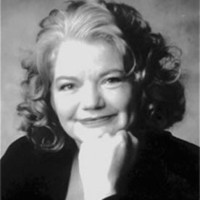AUSTIN — The irony of Ralph Yarborough's death coming so quickly after Barbara Jordan's escaped no one. There went 60 percent of the courage, 50 percent of the compassion and 50 percent of the intellect in Texas politics in just a few days. My God, we are bereaved.
Yarborough the Lion-Hearted, dead at 92, at least had his full measure of years. And to what splendid use he put them. If you look back through "Raff" Yarborough's years with the full benefit of historical perspective, his integrity and courage are astounding. He was simply right, so early, so often and with such courage.
Politically, he was a very lonely man. From his early days in the attorney general's office in the 1930s (when he fought for the dedication of the oil royalties on our public lands for the public schools) to the 1960s (when he was the only Southern senator to vote for the Civil Rights Act in 1964 and one of the very first to oppose the war in Vietnam), Yarborough often fought alone.
Since I cannot begin to encompass his entire political career, I will only try to give you a sense of him, of how he worked and spoke and was, and of his passion for justice. He was pure East Texas populist but with a populism informed by vast learning. His 1927 grade-point average at the University of Texas at Austin's law school is the stuff of legend. He was a judge at 33. He read so widely that he knew whole civilizations the way most of us know the neighborhoods in our town. He had not an ounce of arrogance to him; he dedicated his life to "plain folks."
Picture a campaign summer in the 1950s, say, in East Texas, Raff Yarborough on the back of a flatbed truck with a C&W band in tow. Yarborough on a tear, explaining to plain folks in plain words the right and the wrong of Jim Crow, of McCarthyism, of communism, of Hispanic field workers, of the oil companies ripping off Texas, of the gutless politicians who let it happen. Any politician who gets off an applause line today will stop and enjoy the clapping. Not Yarborough. Folks would start clapping, and he'd get off an even better line over the applause. And then another. And then another. And then another, until the people were on their feet cheering, and then, he'd top them all.
We had retail politics in those days, and going out to hear Raff Yarborough talk was high entertainment; everybody would bring Granny and the kids and a blanket and a picnic and settle down to hear him. It was better than the Chautauqua. No one makes speeches that long nowadays; Yarborough never did learn to shorten them for the television age. The Bible and Homer, Sam Houston and Marcus Aurelius, James Madison and Bob Wills, all in one speech. And always with that drumbeat for justice, simple justice, because he believed so passionately that's what this country is about.
In those days, children, there were no Republicans in Texas. Young people used to call home from college to report to their parents that they'd actually met one. We had only two flavors of Democrats. The Democratic Establishment was Lyndon B. Johnson, who whored for the oil companies back then; Allan Shivers, who was a dreadful man; and John Connally, who served them both. Yarborough fought them all, and against a stacked deck to boot. The party had the unit rule and all other manner of rules that could be used to suppress dissident opinion. This lead to famous walkouts and shutouts at state conventions. The liberals' greatest exit line was to march out singing, to the tune of "The Battle Hymn of the Republic," "John Bowden Connally lies a-moldering in the grass: John Bowden Connally is a goddamn horse's ass."
The means used to defeat and suppress Yarborough, who was anathema to the Establishment, were legion. One of the most famous was "The Port Arthur Story," a "documentary" film used to defeat Yarborough in his 1954 gubernatorial race. It was the first half-hour political ad ever run on statewide television, and it began with a camera panning the deserted streets of downtown Port Arthur.
"This," said the announcer, "is what happens when organized labor comes to your city." The retail clerks in Port Arthur were attempting to unionize at the time, but the deserted streets were not the consequence of fearsome organized labor; they were deserted because they were filmed at 5:30 a.m.
Raff used to claim that the Establishment had spent "meel-yons and meel-yons of dollars" to defeat him, and so they did. Lloyd Bentsen finally beat him in the 1970 primary by spending the then-unimaginable sum of $6 million. In a Yarborough campaign, it was always the people against the money, and as money came to weigh more and more in our politics, voices like Raff's were squeezed out of office. But never silenced. That great trumpet sounded again and again, calling to the best in us, for freedom, for justice, for peace.
***
Molly Ivins is a columnist for the Fort Worth Star-Telegram.






View Comments